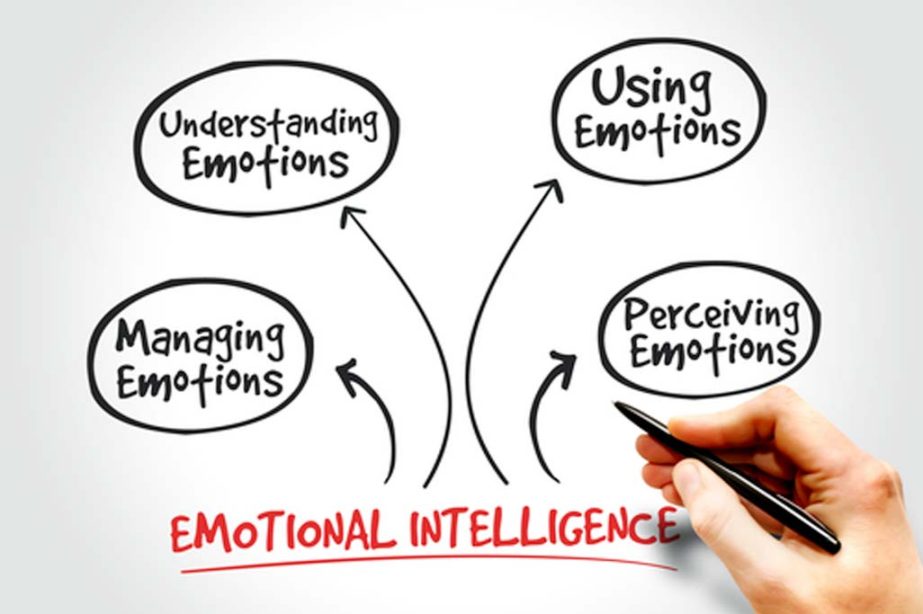
Joanna Hughes :
We’ve all heard the expression, “Men are from Mars and women are from Venus.” However, according to recent research published in the journal, Advances in Physiology Education, it may be more accurate to conclude that female students are from earth — or more down to earth, to be precise — when it comes to perceiving their own academic abilities, that is. Here’s a closer look at the findings. Introducing “Academic Self-Concept”
Many factors go into determining how students learn and retain information. Specifically, sense of belonging, self-efficacy, comfort and science identity have all been acknowledged by researchers as “affective components of learning.” One until-now unaddressed affective construct? Student academic self-concept. What does this mean, exactly? According to the paper, “Academic self-concept is one’s perception of one’s own ability in a specific academic domain (i.e., statistics, ecology, physiology) and is developed by one’s experiences with a learning environment, including academic interactions with peers and instructors.” It is strongly influenced by how a student perceives his/her own academic abilities when compared to a group of peers in the same domain. In other words, academic self-concept simply refers to how students think they stack up against their classmates. The Gender Gap
After looking at academic self-concept for a group of physiology students, researchers determined that men (and native English speakers) had “significantly higher” academic self-concept than women (and non-native English speakers). Tthe findings also indicate that students with higher academic self-concept are more likely to participate in group discussions with implications for learning “since students are constructing their own knowledge rather than listening passively.”
Says Katelyn Cooper, one of the study’s researchers, “This is not an easy problem to fix. It’s a mindset that has likely been ingrained in female students since they began their academic journeys.”
At the same time, Cooper says, it’s not irreversible. “We can start by structuring group work in a way that ensures everyone’s voices are heard, to help [students] take a more equitable approach to group work,” she suggests.
Still convinced, despite these disparities in perception, that your own intelligence exceeds that of your classmates? You’re not alone: the study also revealed that 71 percent of students think they’re smarter than at least 50 percent of their classmates. You don’t have to be a math wiz to know that doesn’t add up.
(Joanna worked in higher education administration for many years at a leading research institution before becoming a full-time freelance writer. She lives in the beautiful White Mountains region of New Hampshire with her family).
We’ve all heard the expression, “Men are from Mars and women are from Venus.” However, according to recent research published in the journal, Advances in Physiology Education, it may be more accurate to conclude that female students are from earth — or more down to earth, to be precise — when it comes to perceiving their own academic abilities, that is. Here’s a closer look at the findings. Introducing “Academic Self-Concept”
Many factors go into determining how students learn and retain information. Specifically, sense of belonging, self-efficacy, comfort and science identity have all been acknowledged by researchers as “affective components of learning.” One until-now unaddressed affective construct? Student academic self-concept. What does this mean, exactly? According to the paper, “Academic self-concept is one’s perception of one’s own ability in a specific academic domain (i.e., statistics, ecology, physiology) and is developed by one’s experiences with a learning environment, including academic interactions with peers and instructors.” It is strongly influenced by how a student perceives his/her own academic abilities when compared to a group of peers in the same domain. In other words, academic self-concept simply refers to how students think they stack up against their classmates. The Gender Gap
After looking at academic self-concept for a group of physiology students, researchers determined that men (and native English speakers) had “significantly higher” academic self-concept than women (and non-native English speakers). Tthe findings also indicate that students with higher academic self-concept are more likely to participate in group discussions with implications for learning “since students are constructing their own knowledge rather than listening passively.”
Says Katelyn Cooper, one of the study’s researchers, “This is not an easy problem to fix. It’s a mindset that has likely been ingrained in female students since they began their academic journeys.”
At the same time, Cooper says, it’s not irreversible. “We can start by structuring group work in a way that ensures everyone’s voices are heard, to help [students] take a more equitable approach to group work,” she suggests.
Still convinced, despite these disparities in perception, that your own intelligence exceeds that of your classmates? You’re not alone: the study also revealed that 71 percent of students think they’re smarter than at least 50 percent of their classmates. You don’t have to be a math wiz to know that doesn’t add up.
(Joanna worked in higher education administration for many years at a leading research institution before becoming a full-time freelance writer. She lives in the beautiful White Mountains region of New Hampshire with her family).

